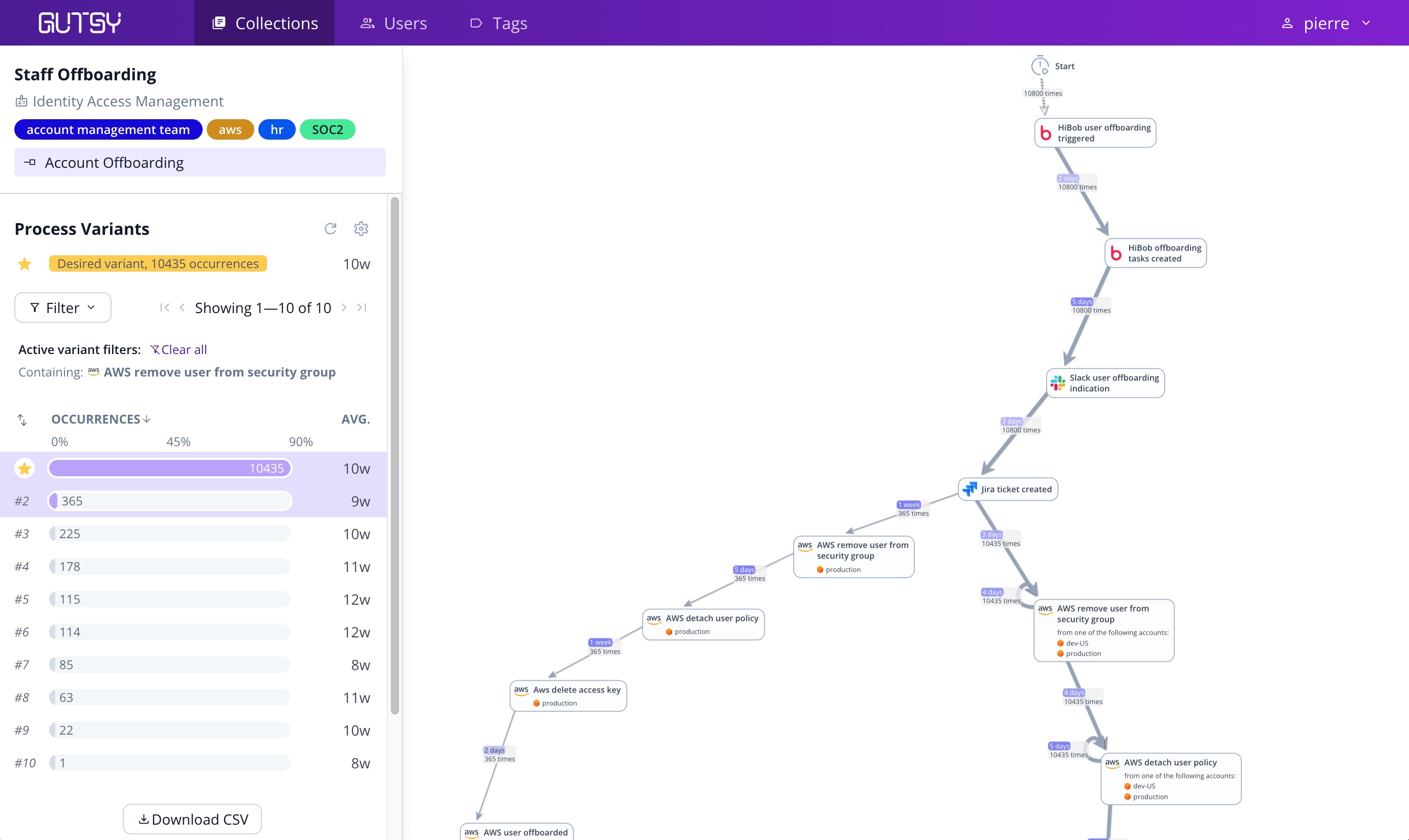Twistlock was founded in 2015 with the idea of securing the nascent cloud native computing environment, a notion you could argue was well ahead of its time. When the company was acquired by Palo Alto Networks in 2019 for $410 million, it turned out that wasn’t the end of the story. The founding group got the band back together a year ago and began working on Gutsy with the idea of applying process mining to security.
Today, the company emerged from stealth with an enormous $51 million seed round led by YL Ventures and Mayfield. The founding team includes CEO Ben Bernstein, VP of R&D Dima Stopel and CTO John Morello — the three founders, who also formed the core of Twistlock.
Morello says security has historically been all about detection and settings, looking at how something is misconfigured or how an incident has occurred, but he says the company was founded on the idea that systems are a set of interconnected processes, and to get to the heart of any incident, you need to understand how those systems fit together to get to that end result.
“What we’re saying is that if you have a process-centric view of the world, and you view the way that your organization works as a series of interconnected systems and events that deliver outcomes, then you can have a much more realistic perspective about how things work and be able to identify those problems that are preventing or delaying you from getting to the outcomes that you want,” he told TechCrunch.
“The mechanism that we’re using to do that is we’re applying a set of data science techniques called process mining, the same kind of approach that Celonis and others have taken for looking at generic business processes, and we’re applying that to cybersecurity for the first time,” he said.
Much like business process mining, where you are able to visualize the connections between systems, you can begin to see where the processes like staff offboarding are breaking down and take actions to make your company more secure.
“What we give to you as a customer, as a user, is really kind of like a high-resolution Google map of all the different variations of the process that are occurring with the ability for you to go in there and analyze the data and really try to identify the things that have the biggest impact on why you are not meeting a security objective that you want to, or not meeting it as reliably as you want to,” he said.

Image Credits: Gutsy
To this point, the company has been working with a handful of design partners to refine the idea and get it ready. Morello says the company is coming out of stealth now to work with a broader set of companies.
He sees this as an original idea, one that could soon have copycats, which is why the company has tried to be stealthy to this point, to protect the idea. He’s hoping that being first-to-market and all that entails will give the company an advantage, but he also understands that if the startup is able to respond to customer needs and execute on the vision, then it should be fine, even when competitors eventually show up.
The company has 24 employees and CEO Bernstein feels it’s at about the right size for the moment until it gets a better feel for the market for this idea. He says when it comes to diversity, it’s more than just a buzzword for the startup, and one of its strategies to build a more diverse organization, going back to Twistlock, has been to not concentrate in the Bay Area for employees.
“We’re not in Palo Alto with all the usual suspects. We have a team in Baton Rouge. We have a team in Portland. And we’ve got really good talent because these locations are actually diverse,” he said. “God didn’t put all the brains in the Bay Area.”
As for taking such a large seed, Bernstein says that the company wanted to have enough money to really incubate the idea with the understanding that they will have to compete with other companies eventually. “We feel that this amount of money should help us execute, even if it’s more than we need right now,” he said.
